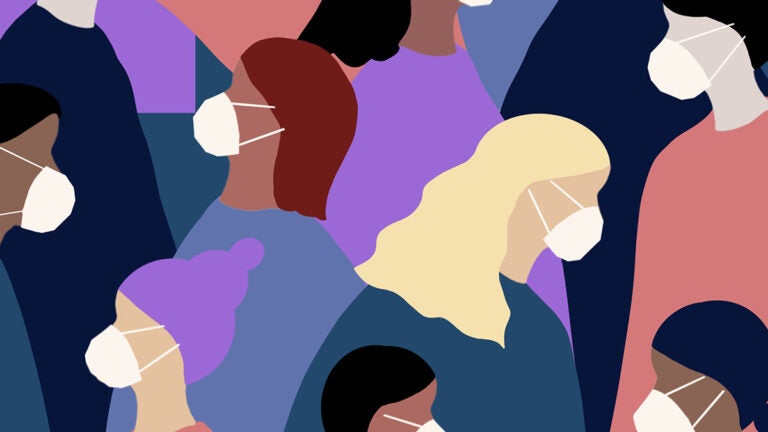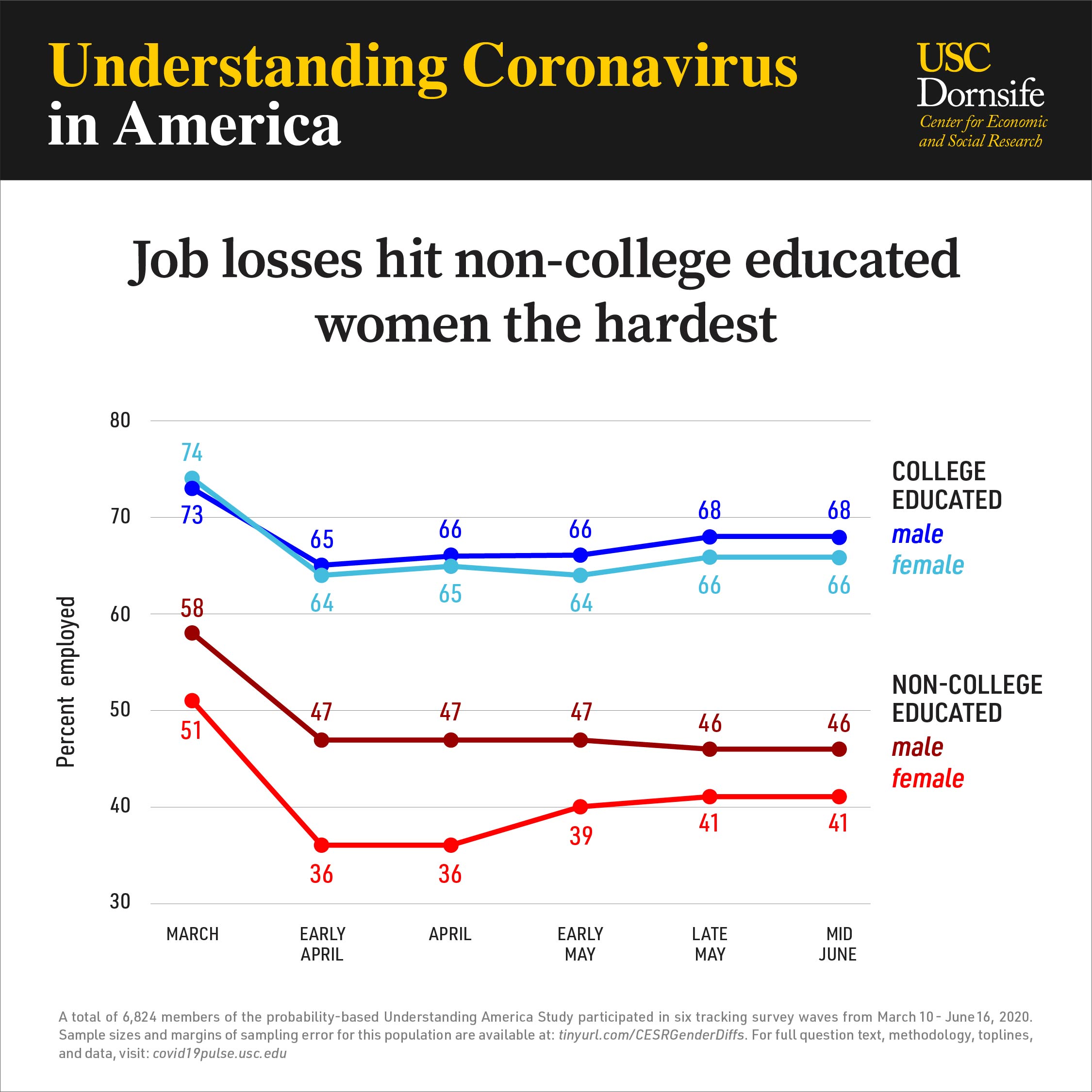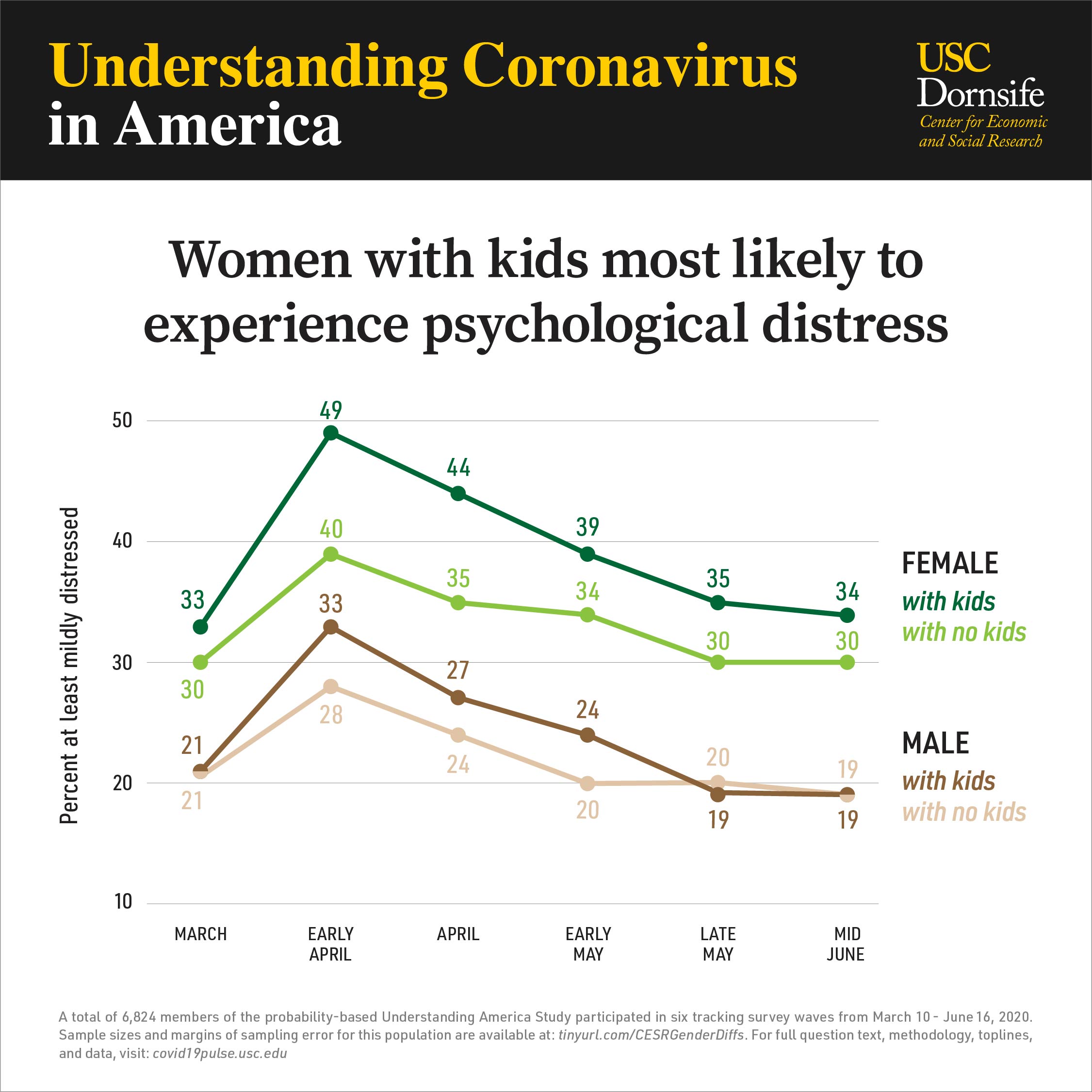
COVID-19 pandemic has hit women hard, especially working mothers
A new analysis of the Understanding Coronavirus in America Study has found that women, particularly those without a college degree, suffered more job losses than men and bore significantly greater responsibility for child care during the COVID-19 pandemic.
Scientists at USC Dornsife College of Letters, Arts and Sciences’ Center for Economic and Social Research (CESR), which conducts the study, found one-third of working mothers in two-parent households reported they were the only ones providing care for their children, compared to one-tenth of working fathers. Higher levels of psychological distress have also emerged among women with children, compared to women without children and to men with or without children.
Study author and CESR Adjunct Senior Economist Gema Zamarro said there are several reasons the current COVID-19 crisis and the coinciding recession have disproportionately affected women.
The pandemic has devastated service-oriented sectors that employ more women, such as restaurants and hotels, and as schools and day care centers closed, child care needs soared.
“Considering women already shouldered a greater burden for child care prior to the pandemic, it’s unsurprising the demands are now even greater,” said Zamarro, who is also a professor at the University of Arkansas.
The full report in PDF format is available at https://tinyurl.com/CESRGenderDiffs.
COVID-19 associated with greater job losses for less-educated women
Less-educated women have suffered the greatest job losses: a 15 percentage-point drop, compared to an 11-point decline for men with similar educations. Meanwhile, college-educated men and women are experiencing similar rates of job loss.
A new gap in women’s emotional distress
Women have long reported higher levels of psychological distress than men, but the COVID-19 pandemic is associated with even greater feelings of anxiety and depression among women with children.
Moms reported a huge spike in psychological distress in early April, compared to women without kids and to all men. The level steadily eased through early June to pre-pandemic levels, but women remain disproportionately impacted.
See USC News for more on the story >>
About the Understanding Coronavirus in America survey
Since mid-March, CESR’s researchers have surveyed a panel of around 7,000 U.S. adults regarding their perceptions and attitudes about coronavirus and the impact of coronavirus on their lives. Graphs from the biweekly tracking survey, which is supported in part by the Bill & Melinda Gates Foundation and USC, are updated daily and available to researchers and the public at: covid19pulse.usc.edu.
A total of 6,824 members of the probability-based Understanding Coronavirus in America study participated in six tracking survey waves from March 10 through June 16, 2020. Sample sizes and margins of sampling error for the populations in this release are available in the full study report: https://tinyurl.com/CESRGenderDiffs.

